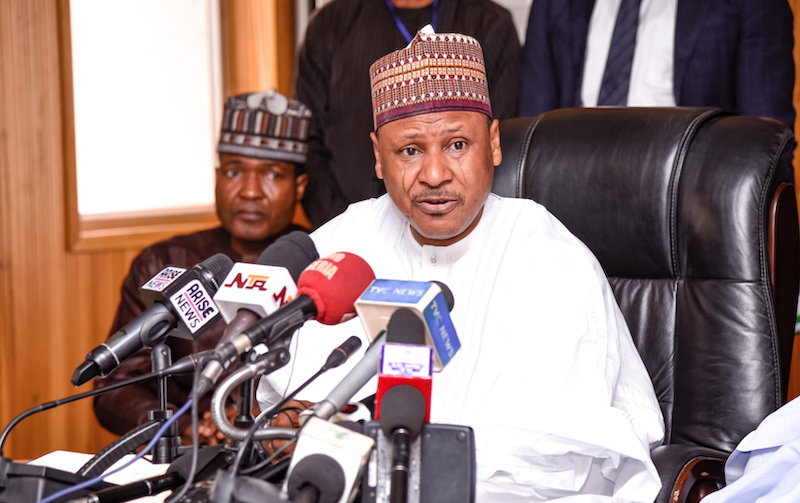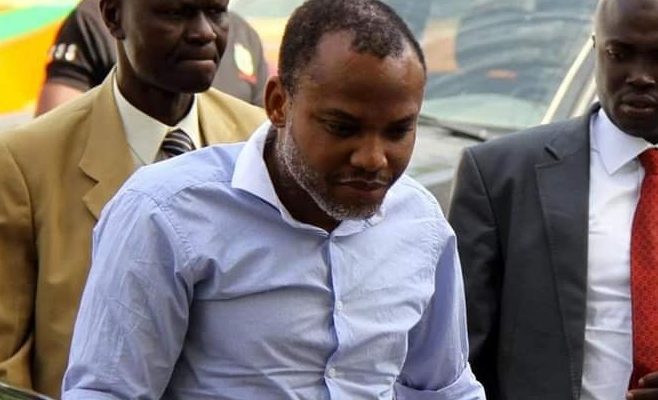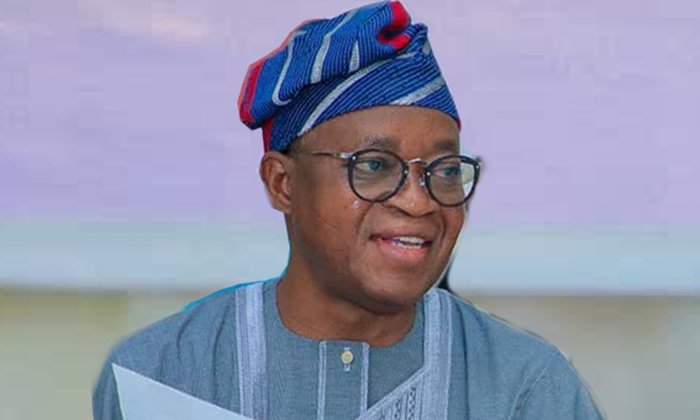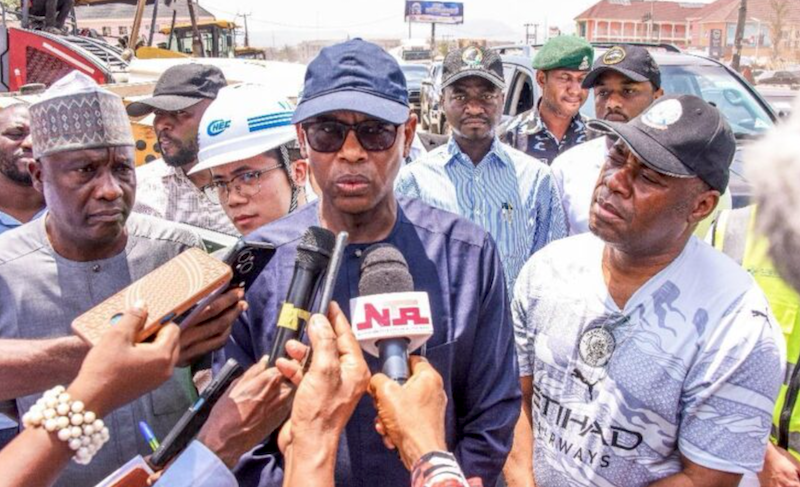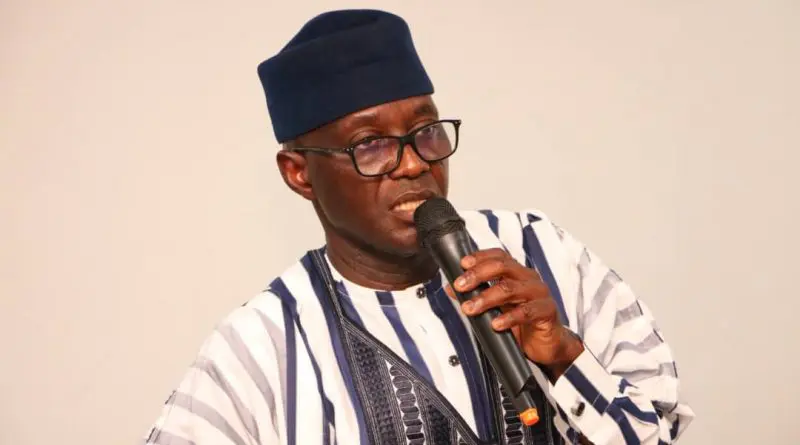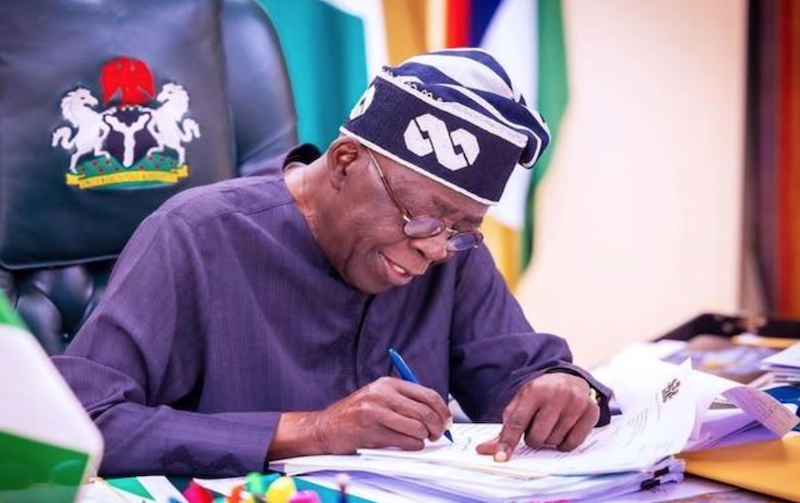President Bola Tinubu has disclosed that his administration will resuscitate Bank of Agriculture and properly repositioned it to meet farmers’ needs and improve farming and agricultural production in the country.
TheNewsGuru.com (TNG) reports President Tinubu made the disclosure on Friday during a two-day visit to Katsina State.
“When resuscitated, the bank will make funds available for large, medium and small-scale farming,” he said.
Tinubu noted that hunger and poverty remained the biggest threats to peace in the country.
“The economy is sailing in the right trajectory. Today, we are seeing an effort to banish hunger and a commitment to food security and the empowerment of our people.
“Small and large-scale farming will be encouraged. Once we liberate ourselves from hunger, we will appreciate peace and harmony.
“The remarkable progress in the state will continue to be rewarded. I want to assure the Nigerian public that agriculture is the heart of our progress and must be for all.
“We have dedicated ourselves to food security. We must invest in mechanisation and water management. The old style of agriculture is gone,” he stated.
While on the two-day visit, the President commissioned a 24 kilometre road, which the State Governor, Dikko Radda completed within 18 months. He also commissioned the Katsina Agricultural Mechanised Centre.
The road commissioned was the Eastern Bypass, which stretched from Dutsin-ma Road through Kano and Daura Roads and terminated at Yandaki in the Kaita Local Government Area.
Speaking, Tinubu called on governors to remain focused on delivering tangible results that improve the lives of their people, urging them to disregard armchair critics.
“Let the people be at the heart of your programmes. Your hard work and concrete achievements will answer any criticism. Ignore distractions – your results will speak for you,” he said.
“We have decided for peace and stability. I know you face terrorism and banditry attacks in the state, but you have shown determination and courage to move Katsina State forward. You will not walk alone. The federal government will be with you,” he added.
Meanwhile, Tinubu commended Radda for impacting agriculture, healthcare, education and infrastructure in less than two years.
“I listened to your report card. It is a big task. In just half of your tenure, you have made remarkable progress.
“The commitment you have shown and the efforts you have put into government are highly commendable. You are a patriot, a son, and a progressive mind with honesty.
“It was difficult during the election when you started, thanks to former Governors like Ibrahim Shema, the bridge builder Aminu Masari and Waziri of the universe, Ibrahim Masari.
“I want to congratulate the great people of Katsina for making the right choice by electing Radda. We have been collaborating with him for the good of the state and the country,” the President added.
President Tinubu challenged the governors to pay more attention to agriculture.
“You have introduced a great, progressive movement in Katsina State by just tilling the land and putting the land to use. Farming will be our source of prosperity and growth.
“We should remove ourselves from reliance on oil and commit to agriculture. It will bring prosperity. I commend you for the mechanisation programme.
“It is a great investment, and I hope others can learn from it. The construction of the 24-km road speaks volumes about the effectiveness of the government. I say thank you,” President Tinubu said.
He thanked past governors of the state for purposeful leadership and appreciated the traditional council, Katsina, and Daura Emirates for supporting the country’s unity, peace, and progress.
“Thank you for the great honour that you have given me. Your coming to the airport to receive me made me feel so welcome. I am your son, and I am one of you.
“You’ve demonstrated commitment and sincerity to the unity and peace of our country.
“God will continue honouring and raising you in grace for our country. For me, this is homecoming, and Katsina is home. Home to progress, development and freedom for good,” he added.
Radda, on his part, said the Katsina Agricultural Mechanized Centre would serve the 34 local councils in the state, noting that 400 tractors had been purchased with the federal government’s N25 billion intervention.
He said 160 km of roads had been constructed, and some rehabilitated within the state over the period, while power, water supply, and healthcare facilities had improved people’s lives.
Radda added that the Ministry of Agriculture had supplied the state with 4,000 pumping machines to enhance irrigation farming.
He said 448,000 metric tonnes of fertiliser were distributed to farmers last year, and this year, they would receive 400,000 metric tonnes.
The governors of Borno, Benue, Kaduna, Kwara, and Jigawa states attended the commissioning.
Former Governors Aminu Masari and Ibrahim Shema, as well as ministers of culture, solid minerals, and agriculture, were also present.
